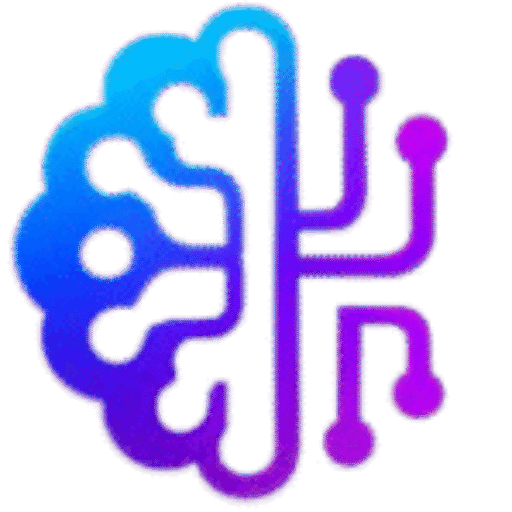Best AI Tools for Event Management Apps
Introduction
Event management has transformed drastically in the past decade. What once relied on manual planning, spreadsheets, and endless phone calls has now shifted to digital-first experiences. From conferences to concerts, weddings to webinars, apps have become the backbone of event organization.
But as attendee expectations rise, basic event apps are no longer enough. Event planners want smarter recommendations, personalized experiences, real-time analytics, and automation that saves both time and money. That’s where artificial intelligence (AI) steps in.
AI tools are reshaping event management apps, enabling everything from intelligent matchmaking to dynamic scheduling, smart marketing, and post-event analysis. In this blog, we’ll explore the best AI tools for event management apps, how they enhance user experience, and where you can integrate them to stay ahead of the competition.
Why AI Matters in Event Management
Before diving into the tools, let’s clarify why AI is becoming essential:
- Personalization: Attendees expect event agendas, networking suggestions, and recommendations tailored to their interests.
- Automation: Repetitive tasks (like sending reminders, scheduling sessions, or generating badges) can be automated with AI.
- Analytics: Organizers need to measure ROI, engagement, and attendee satisfaction with real-time insights.
- Engagement: AI-driven chatbots, smart notifications, and gamification keep participants active before, during, and after the event.
- Scalability: Whether an event has 50 or 50,000 attendees, AI helps maintain consistency and quality.
Now, let’s review the best AI-powered tools that event management app designers and developers should consider.
1. AI-Powered Chatbots & Virtual Assistants
Examples: Drift, Intercom, MobileMonkey, Ada
Chatbots are one of the most impactful integrations for event apps. Instead of overwhelming human staff, AI assistants can answer common questions, guide attendees, and provide personalized recommendations.
Use cases in event apps:
- Answer FAQs about schedules, speakers, or locations.
- Send reminders (“Your next session starts in 10 minutes”).
- Help attendees navigate large venues with maps.
- Collect feedback during or after sessions.
Why it’s useful:
- Reduces workload on support teams.
- Offers 24/7 instant responses.
- Increases attendee satisfaction.
2. Personalized Recommendations Engines
Examples: Recombee, Algolia Recommend, Amazon Personalize
One of the biggest challenges in large events is choice overload. With dozens of sessions and speakers, attendees struggle to find what’s most relevant. AI recommendation engines solve this.
Use cases in event apps:
- Suggest sessions, workshops, or exhibitors based on past behavior or profile interests.
- Match attendees with relevant networking opportunities.
- Recommend nearby restaurants or partner activities during breaks.
Why it’s useful:
- Creates a curated, “Netflix-like” experience.
- Boosts engagement by aligning with attendee preferences.
- Encourages longer app usage.
3. Smart Scheduling & Automation
Examples: Clara Labs, Motion, x.ai, Clockwise
Scheduling is one of the toughest tasks in event management. AI-driven scheduling tools automatically optimize session times, allocate resources, and prevent conflicts.
Use cases in event apps:
- Automatically generate personalized event agendas.
- Adjust session schedules based on speaker availability.
- Manage last-minute changes without confusing attendees.
Why it’s useful:
- Saves hours of manual work.
- Reduces human errors in planning.
- Keeps everyone updated in real time.
4. AI for Ticketing & Pricing
Examples: Eventbrite’s AI tools, StubHub’s dynamic pricing, Ticketmaster Presence
Pricing strategy can make or break an event. AI-driven ticketing platforms use data to optimize ticket prices and predict demand.
Use cases in event apps:
- Dynamic pricing that adjusts based on demand and availability.
- Fraud detection to prevent fake ticket sales.
- Predicting no-shows and sending reminders.
Why it’s useful:
- Maximizes revenue for organizers.
- Ensures fair access to attendees.
- Improves trust with secure ticketing.
5. Facial Recognition & Smart Check-In
Examples: Zenus, Trueface, AnyVision
Long registration lines frustrate attendees. AI-driven facial recognition tools make check-in seamless and secure.
Use cases in event apps:
- Contactless entry with facial recognition.
- Enhanced security for VIP areas.
- Faster badge generation and tracking.
Why it’s useful:
- Improves attendee experience with quick entry.
- Strengthens event security.
- Reduces reliance on physical passes.
6. AI for Networking & Matchmaking
Examples: Grip, Brella, Swapcard
Networking is often the primary reason people attend events. AI helps attendees meet the right people by analyzing profiles, interests, and goals.
Use cases in event apps:
- Suggest potential contacts for one-on-one meetings.
- Create AI-driven networking lounges.
- Match attendees with exhibitors that suit their industry.
Why it’s useful:
- Boosts attendee satisfaction with meaningful connections.
- Increases exhibitor ROI.
- Encourages repeated app use during the event.
7. Sentiment Analysis & Feedback
Examples: MonkeyLearn, Lexalytics, IBM Watson NLU
Feedback forms often get ignored or filled casually. AI-driven sentiment analysis pulls insights from multiple data sources, not just forms.
Use cases in event apps:
- Analyze chat messages, social media, or surveys.
- Detect attendee mood during live sessions.
- Provide real-time satisfaction scores to organizers.
Why it’s useful:
- Gives deeper insights beyond numeric ratings.
- Helps organizers adapt quickly if issues arise.
- Improves planning for future events.
8. Event Marketing & Promotion with AI
Examples: HubSpot AI, Persado, Jasper, Writesonic
Marketing an event requires precise targeting and compelling copy. AI marketing tools boost conversions by creating better campaigns.
Use cases in event apps:
- Personalized push notifications about sessions or deals.
- AI-generated email campaigns to boost registrations.
- Optimized ad targeting for event promotion.
Why it’s useful:
- Reduces marketing costs.
- Improves campaign effectiveness.
- Ensures higher registration and attendance rates.
9. AI for Data Analytics & ROI Measurement
Examples: Tableau with AI features, Microsoft Power BI + AI, Google BigQuery ML
Organizers want proof of value: Was the event successful? Did attendees engage? AI-powered analytics dashboards provide clear answers.
Use cases in event apps:
- Real-time dashboards tracking engagement, foot traffic, or session popularity.
- Predictive analytics for future attendance.
- ROI measurement for sponsors and exhibitors.
Why it’s useful:
- Provides transparency to stakeholders.
- Helps improve planning for upcoming events.
- Strengthens sponsorship relationships with data-driven reports.
10. Virtual & Hybrid Event AI Tools
Examples: Hopin, Airmeet, Remo, Zoom AI Companion
Since the pandemic, hybrid and virtual events have become mainstream. AI makes these digital-first experiences smoother.
Use cases in event apps:
- AI background noise cancellation for better audio.
- Automated live captioning and translation.
- Smart breakout room recommendations for networking.
Why it’s useful:
- Expands audience reach globally.
- Increases accessibility with captions and translations.
- Keeps remote participants as engaged as in-person ones.
11. AI for Sustainability in Events
Examples: Emitwise, IBM Environmental Intelligence Suite
Sustainability is now a top concern for organizers. AI helps reduce waste and optimize resources.
Use cases in event apps:
- Predict food and beverage consumption.
- Suggest eco-friendly travel options.
- Track carbon footprint of the event.
Why it’s useful:
- Supports eco-friendly branding.
- Reduces event costs by cutting waste.
- Aligns with attendee values.
Practical Use-Case Scenarios
- Corporate Conference: AI-powered matchmaking connects executives with potential partners, while sentiment analysis helps organizers identify session strengths.
- Music Festival: Dynamic ticket pricing maximizes revenue; facial recognition enables quick entry.
- Trade Show: Personalized schedules guide attendees to booths, while exhibitors get AI-driven leads.
- Hybrid Webinar: AI captioning and real-time translation allow global participation.
Tips for Choosing the Right AI Tools
- Define goals: Do you want better engagement, more revenue, or smoother logistics?
- Check integrations: Ensure the AI tool works with your existing event app.
- Test scalability: Can the tool handle small meetings and large expos alike?
- Prioritize UX: Attendees should feel benefits without complexity.
- Balance cost and ROI: Start with small AI features, then scale.
Conclusion
AI is revolutionizing event management by turning traditional apps into smart, interactive, and highly personalized platforms. From chatbots to matchmaking, smart ticketing to sentiment analysis, AI tools enhance every stage of the event journey.
For product designers and developers, integrating AI isn’t just about staying modern — it’s about delivering exceptional attendee experiences and measurable ROI for organizers.
If you’re building or improving an event management app, start small: add a chatbot, test AI recommendations, or try automated analytics. As adoption grows, layer in more advanced features like facial recognition or dynamic pricing.
With the right AI tools, your event management app won’t just manage events — it will transform them into unforgettable experiences.
Related Blogs (Interlinking)
To explore more AI insights for product design, check out our other detailed blogs:
- How to Use AI Tools for User Journey Mapping
- How to Use AI to Design Promotional Assets
- How to Generate Banners & Social Media Graphics with AI
- How to Use AI for A/B Testing Design Variations
- Best AI Tools for Government Product Designers
- Best AI Tools for Non-Profit Product Design
- Best AI Tools for Real Estate App Design
- Best AI Tools for Travel & Booking Platforms
- Best AI Tools for Food Delivery Product Design





